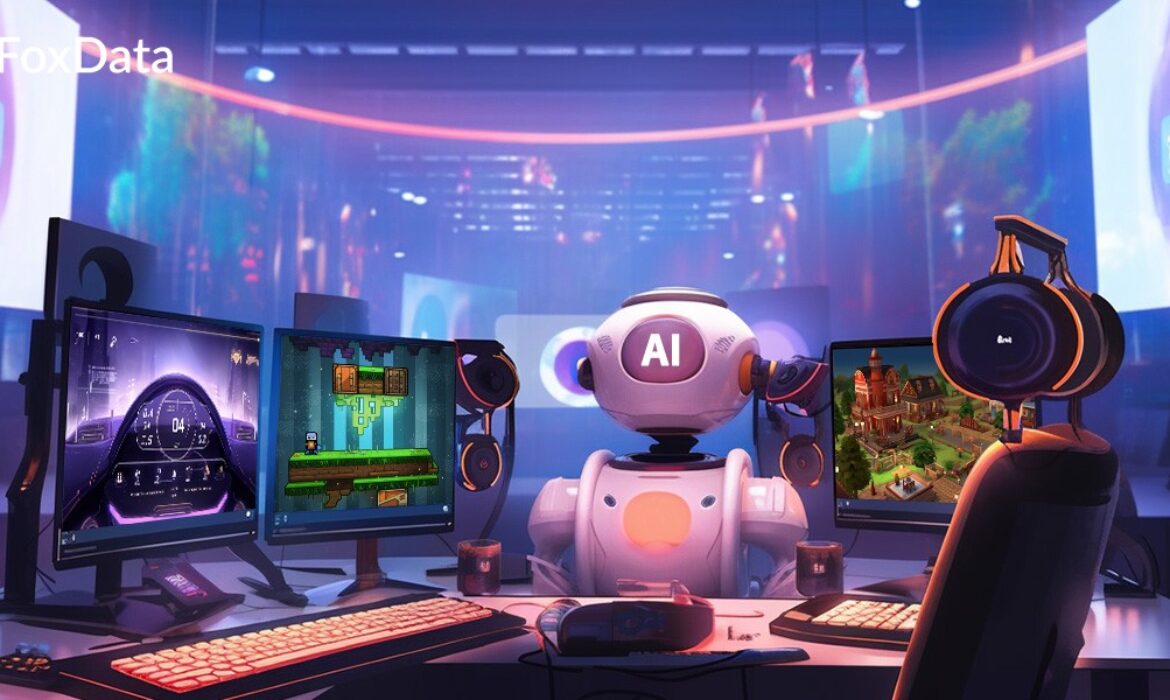
Introduction
The video game industry is changing as a result of artificial intelligence (AI), which is expanding the possibilities for realism, immersion, and player engagement in games. AI has a huge and diverse impact on modern video games, influencing anything from dynamic game landscapes to intelligent NPCs. This article examines the ways in which artificial intelligence is transforming gaming.
- More Astute NPCs
Creating smarter Non-Player Characters (NPCs) is one of the most obvious effects of AI in games. AI systems give NPCs the ability to learn from and adjust to player behavior, resulting in interactions that are more demanding and lifelike. In “The Last of Us Part II,” for example, opponents use devious strategies like flanking and coordinated strikes to outmaneuver the player. This degree of nuanced NPC behavior heightens immersion and engagement by giving the game environment a more lively, responsive sense.
- Methodical Content Creation
Procedural content generation has also been transformed by AI, enabling game creators to construct expansive and distinctive gaming landscapes. AI is used in games such as “No Man’s Sky” to create entire universes with a variety of planets, ecosystems, and animals. This strategy guarantees that no two players will ever have the same experience because the game environment is always changing and evolving. Intriguing gameplay is maintained by procedural generation, which promotes exploration and discovery.
- Customized Video Games
AI’s capacity to examine player preferences and behavior has resulted in incredibly customized game experiences. AI can modify the game to suit the demands of each player by changing stories, difficulty settings, and in-game content suggestions. For instance, the AI Director in “Left 4 Dead” constantly modifies the game’s difficulty and pacing based on player performance. This makes sure that gamers are always involved and challenged, which raises their level of pleasure all around.
- Realistic Physics and Animation
Video game physics and animation have greatly improved because of AI advancements. Character movements can be fluent and natural thanks to techniques like motion matching, which enhance the realism and immersion of the experience. The game world in “Red Dead Redemption 2” is incredibly lifelike thanks to AI-driven animations and ambient interactions. Players are drawn further into the game and feel a stronger emotional connection to the tale and characters because of the realistic portrayal of the characters and locations.
- Enhanced AI Opponent
AI has significantly raised the level of opponent AI, increasing the intelligence and adaptability of opponents. Now that players may teach their opponents tactics, every meeting is different and difficult. The sophisticated AI in games like “Halo” and “F.E.A.R.” is well known for changing strategies in response to player actions. As a result, gameplay becomes more dynamic and interesting because players have to constantly modify their tactics to defeat cunning opponents.
- Artificial Intelligence in Gaming
Processes for testing games are also being changed by AI. The rapid detection of bugs and performance problems by automated AI testing greatly accelerates development cycles and guarantees higher-quality releases. Because of this efficiency, developers are able to release well-polished, bug-free games that increase user happiness and decrease post-launch problems. AI-driven testing can identify potential issues that human testers might overlook by simulating a wide range of scenarios and player behaviors.
7. Enhanced Player Support
AI-driven virtual assistants and chatbots provide enhanced player support, offering real-time assistance and troubleshooting. These AI tools can answer player queries, guide them through difficult game sections, and provide tips and strategies. This immediate support improves the overall gaming experience, helping players overcome challenges and enjoy the game without frustration.
In summary
Artificial intelligence has a significant and wide-ranging influence on contemporary video games. Artificial intelligence (AI) technology is pushing the limits of gaming innovation, from more intelligent NPCs and generative content creation to customized experiences and sophisticated opponent AI. The game industry should anticipate even more ground-breaking developments as AI progresses, which will result in player experiences that are richer, more immersive, and captivating.AI’s contribution to player support and game creation is expected to increase, offering fascinating prospects for the gaming industry’s future. Players may anticipate more complex,dynamic, and personalized gaming experiences that meld virtual and real worlds as developers begin to leverage AI.



